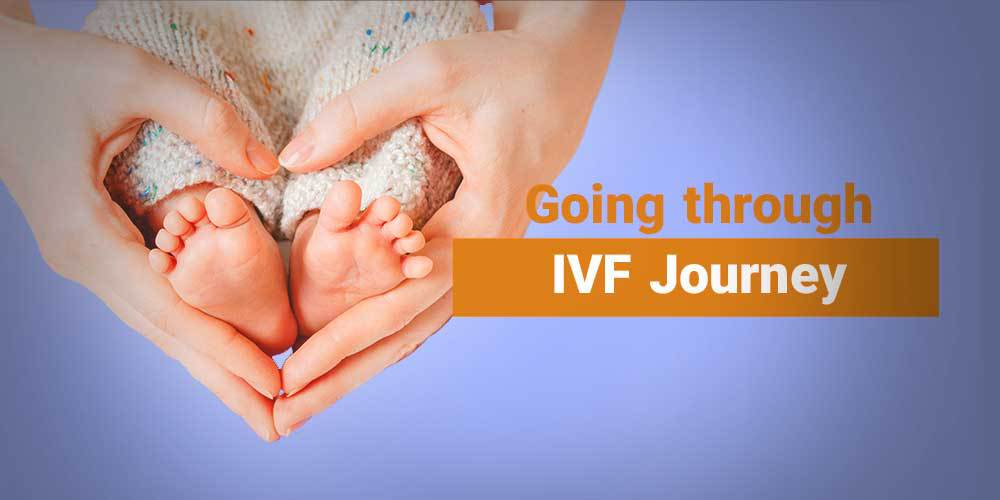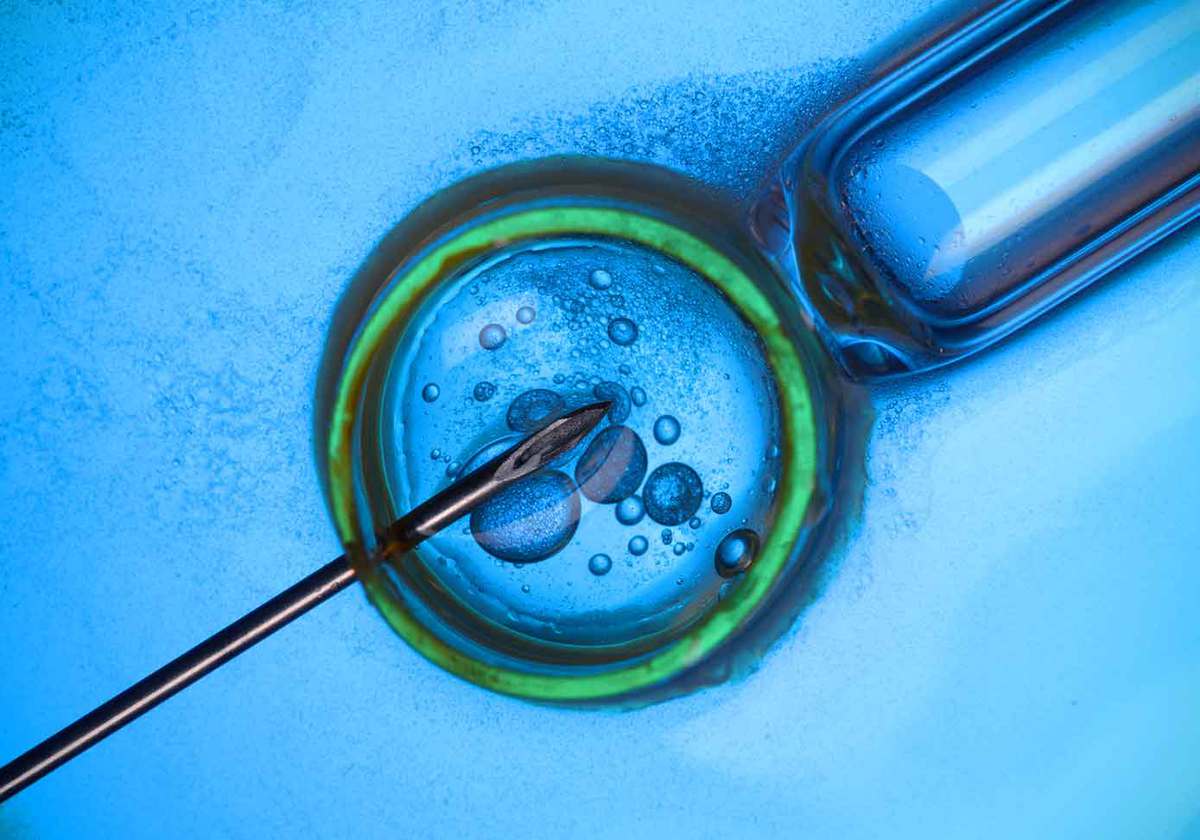-
How does IVF work?
In a general sense, IVF consists of several stages. In fact, after using specific medications, some eggs are retrieved from woman’s ovaries and then fertilized by man’s sperm in a lab. Finally, the selected embryos will be transferred to the woman’s uterus and pregnancy happens. Normally, one full cycle of IVF takes about 2 to 3 weeks. IVF is an expensive medical procedure, due to its complicated and Specialized stages. Professional fertility specialists explain the whole procedure by details and its pros and cons to infertile couples; so, they can step in this journey with awareness. So, let’s review the procedure step by step:
3.1. Pre IVF preparation
IVF is a long journey and you need to prepare yourself, physically and emotionally, to step in this adventure. There are some suggestions for preparing your body for upcoming treatment: eat a well-balanced diet, keep a healthy weight, take needed and prescribed vitamins, avoid smoking and alcohol, and reduce caffeine intake. Mental and emotional health are also vital for starting IVF procedure. There are various methods to manage and eliminate your stress and anxiety, such as: Doing yoga and meditation, sharing your thoughts with your dear ones, joining an infertility support group, and praying or doing some ritual practice. Asking as many questions as you feel needed from your doctor. Some fears about IVF come from your uncertainty about the procedure, its success rate and potential side effects. Your fertility specialist, before starting IVF, will schedule some blood tests to assess the level of follicle stimulating hormone in your body. This blood test shows the quality and number of eggs of the female partner. Moreover, blood test can note the possible incompatibilities between mother’s and father’s blood type. Some other common blood tests are HIV, Hepatitis B, Hepatitis C, and Syphilis and genetic screening. Shortly before the start of IVF, your fertility specialist will likely conduct a semen analysis. Mock embryo transfer is another needed test to determine the depth of uterine cavity. Also, your doctor will use an ultrasound to examine the lining of your uterus.
Best IVF center in Iran! We are here for you!
3.2. During IVF
When initial tests and screenings have done successfully, main stages of IVF begin. Such steps take about 2 to 3 weeks and are also called a full cycle of IVF.
3.2.1. Ovarian stimulation
The first step in IVF procedure is using some hormones to stimulate the ovaries to produce more than single egg that normally happens every month. There are different medications for inducing more eggs, such as menotropins, FSH, clomiphene, GnRH analogues and …. Such daily hormone injections (2-3 medications each night) lasts for about 10 days. During this step, you need to visit your doctor several times to undergo ultrasound scans and blood tests to determine when the eggs are matured enough to collect.
3.2.2. Egg retrieval (Follicular puncture)
After stimulation step proceeds correctly and follicles are almost ready to retrieve, the final “trigger shot” injection help ovaries to release eggs in 24-36 hours. Then, your fertility specialist schedules a day to retrieve the eggs at IVF clinic. The candidate will be sedated during this procedure and a thin, long needle through ultrasound will be inserted through vagina to collect eggs. The mature eggs will be placed in a culture dish and incubated. The semen sample of your husband should be ready at clinic the morning of eggs retrieval. In Iran, sperm donation is illegal and infertile couples must use the husband’s sperm or a donated embryo. In fertilization step, each healthy and mature egg is fertilized by being injected by a single healthy sperm which is separated from the semen sample in the lab. 5 to 7 days after eggs fertilization and when eggs develop into blastocysts. The embryos in this point may be sampled for preimplantation genetic testing. This testing shows which blastocysts are normal.
3.2.3. Embryo transfer
Five days after egg retrieval, the selected embryo will be transferred into your uterus by a catheter which is painless. 9 to 10 days after egg retrieval, if everything goes well, an embryo will implant in the lining of the uterus. About 2 weeks after egg retrieval, your doctor will schedule a blood test to confirm the pregnancy.
3.3. After IVF procedure
Embryo transfer is an easy procedure; however, some aftercares can increase the chance of a successful pregnancy, for instance, taking the prescribed medications on time, avoiding sex till receiving the result of pregnancy test, avoiding contact with sick people, staying hydrated and eating a balanced diet, not doing heavy exercises, and avoiding being exposed to chemical and radiation. Read this article to know more about
IVF side effects! IF your IVF cycle is successful and the blood test and your fertility specialist confirm your pregnancy, you will be referred to a pregnancy specialist to continue your pregnancy and receive maternity care services.




Comments & Questions